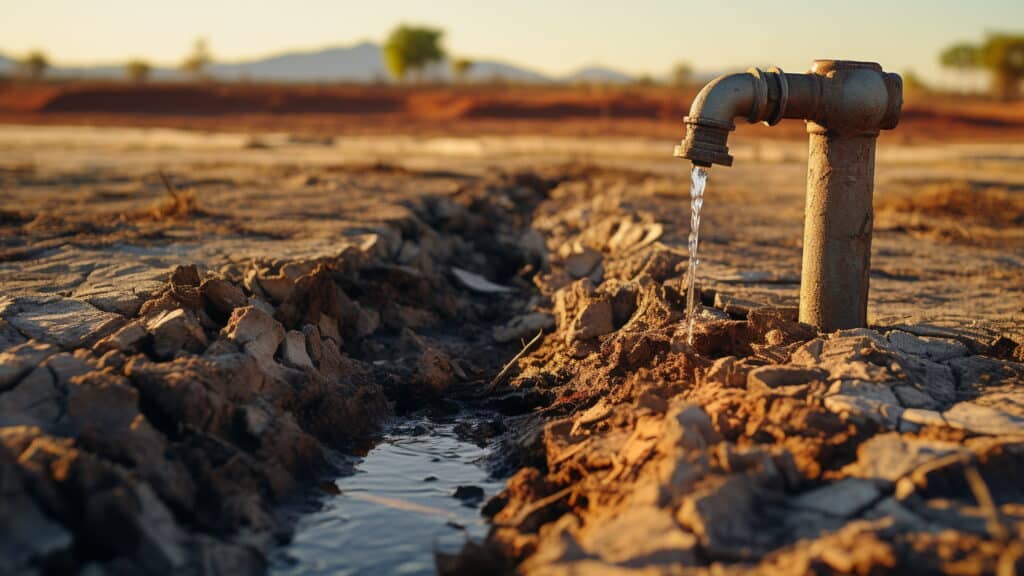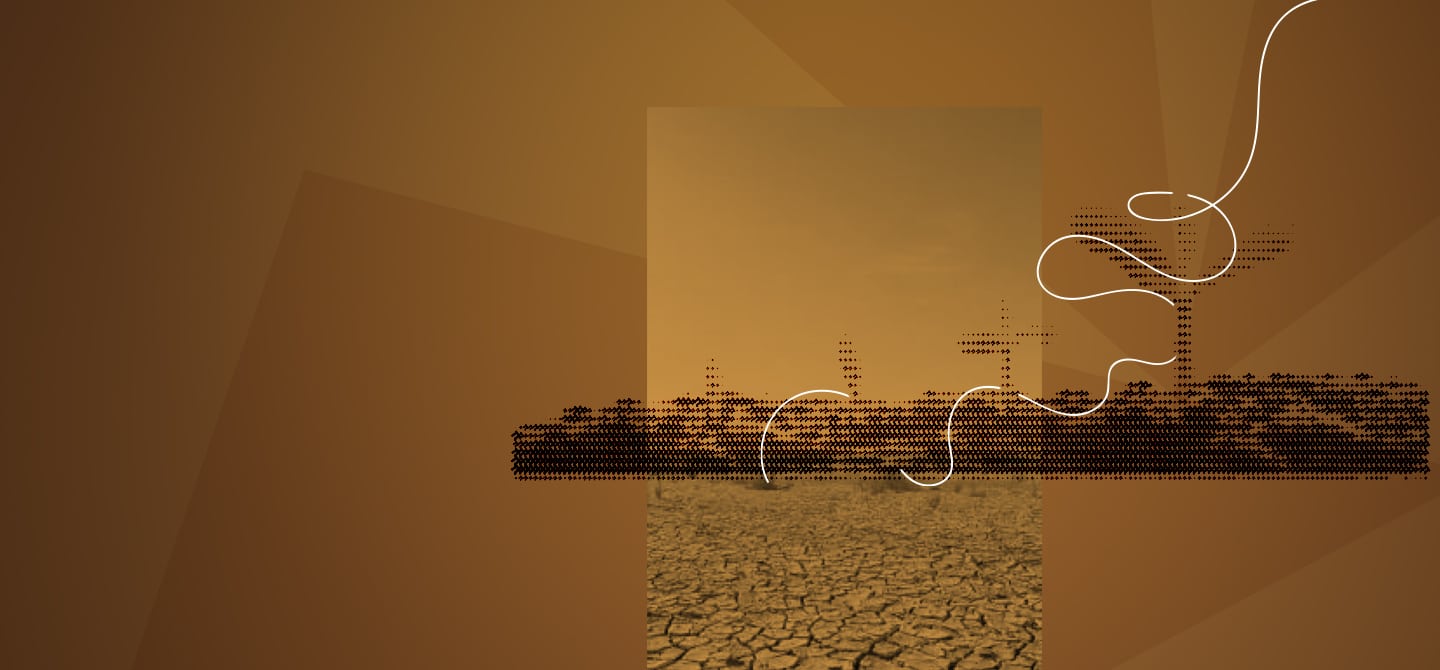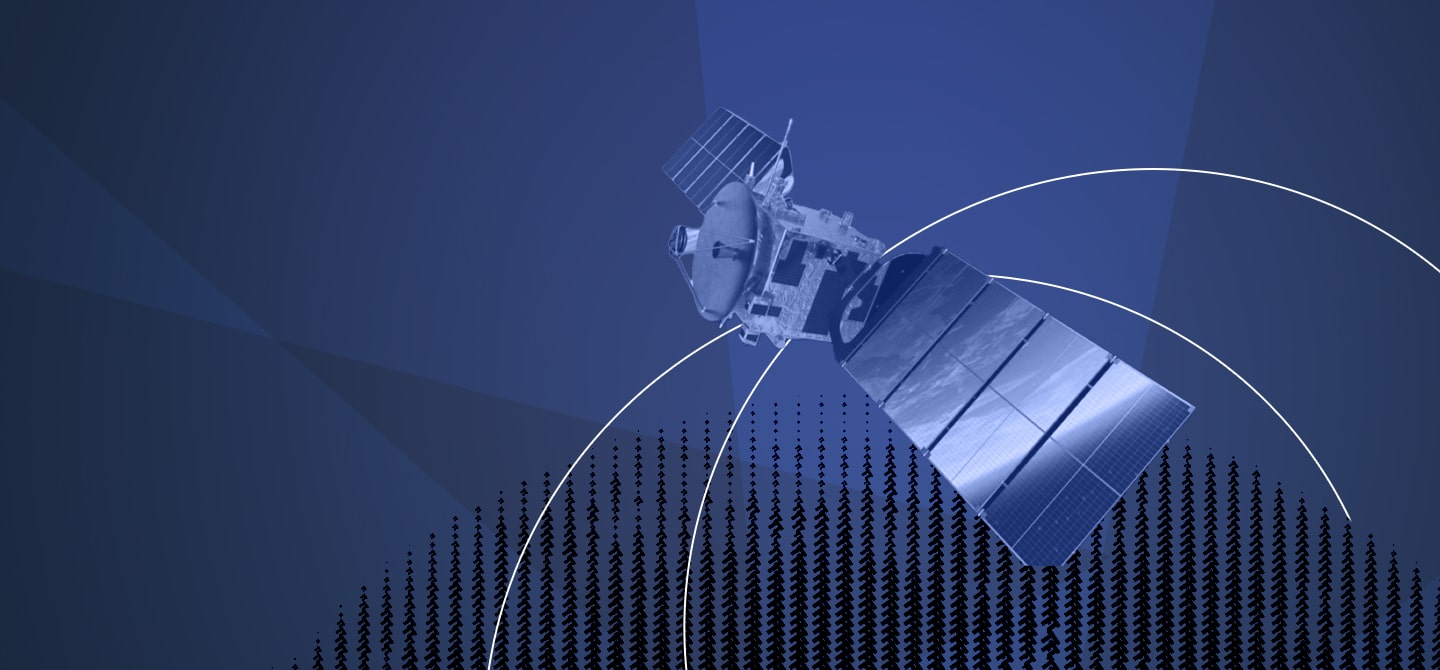In 2022, 2.2 billion people will still not have access to infrastructure providing drinking water. Yet the UN’s Sustainable Development Goal 6 (SDG 6) aims to ensure universal and equitable access to affordable drinking water by 2030.
Why are we so far from this goal today?
It is essential to understand the complexity of the subject of access to water, due to its complete transversality. We are now aware of the need for integrated, concerted water management. This resource is needed for many purposes, almost all of which are in competition with each other: energy production, agriculture, industry, biodiversity, recreation, and vital needs. Even if we put all the necessary technological, social and regulatory advances on the table, it will be impossible to provide universal access to water without adaptation because of the changes we are going through.
What are these changes?
Water resources are under a triple pressure: rising population growth, climate change and increasing urbanisation. Today, we need to supply water to 8 billion people – 10 billion by 2050 – for drinking, washing, eating, healthcare, clothing, housing, etc. Water consumption automatically increases with the emergence of middle classes around the world. As for urbanisation, it is a veritable time bomb if left unchecked. In the countries of the southern hemisphere, urban growth rates are staggering and infrastructure is inadequate. Faced with such an increase, any country would find it extremely difficult to provide functional water and sanitation systems.
How can we secure water resources in the face of these pressures?
Action is needed at various levels. We need to work on the social aspect. It can, for example, help to overcome reluctance to implement certain technical solutions, such as the reuse of wastewater. In the western world, water has become a commonplace commodity. This is not the case in the countries of the Sahel, for example, where the value of water is often central to the construction of these societies. Western societies need to rediscover this value. Finally, I think that progressive water pricing (known as “eco-solidarity”) is an important lever: in Dunkirk, it has reduced household consumption by 8 to 10%1.
Do we have sufficient scientific and technical knowledge to ensure that everyone has access to water?
We have made enormous progress in this area. By using digital technology to optimise irrigation (using drones, sensors and telecommunications), we are able to reuse treated wastewater, artificially recharge groundwater, slow down run-off, encourage infiltration, and so on. Science can provide solutions for every situation, but all too often it is ignored.
What is the role of political decisions in addressing this issue?
Governance is one of the essential levers for securing resources. All over the world, we need to implement solutions that take account of local constraints: the geological context, the nature of activities, demographics, and so on. For example, in the fast-growing cities of the South, the lack of infrastructure is leading to pollution of water resources. More stringent regulations on industrial waste would undoubtedly make it possible to limit these effects. To achieve this, however, we need clear political will.

Political decision-making must take place within structures where local players can consult each other, make trade-offs, decide on investments, etc. Consultation is absolutely essential, particularly in a context where resources are becoming increasingly scarce. Trade-offs have to be made between the different water uses. The United Nations has identified 300 places in the world where shared resources could be a major source of conflict. This dialogue must take place at both local and regional level. The Nile, the Euphrates and the Tigris, for example, are major sources of tension in the regions they cross.
Are there regions where these structures exist and are bearing fruit?
Yes, this is the case with the Niger basin. This river is an essential resource for Benin, Burkina Faso, Cameroon, Côte d’Ivoire, Guinea, Mali, Niger, Nigeria and Chad. All these countries are involved in discussions within an intergovernmental organisation, the Niger Basin Authority. Set up in the 1960s, it has helped to avoid all water-related conflicts. Similar structures exist around the Senegal River, Lake Chad and the Volta Basin. Within these regional governance structures, decisions are taken on the basis of scientific and technical data, with the aim of distributing water equitably across borders. The continuity of hydrological measurements across borders must be ensured, and this is an essential prerequisite.
Integrated water management is also being implemented in France. Although the system is complex – the Court of Auditors has highlighted the problems associated with the countless consultation structures – it is currently working rather well.
And what is the role of governance on an international scale?
It’s also essential: it’s the last level on which we need to work. Water affects the whole of humanity, and it is essential that the United Nations – which is a form of global governance – takes up this issue. In March 2023, the United Nations Conference on Water noted the difficulty of meeting the target of Sustainable Development Goal 6. This underscores the urgency of the situation, and sets things in motion, such as the forthcoming, and long-awaited, appointment of a Special Envoy for Water.
What explains the delay in implementing global governance for water?
The United Nations Conference on Water in 2023 was the first since… 1977! It’s quite incredible, but the examples of the COPs (climate, biodiversity) show that it is possible to set up such structures. But even these organisations cannot deal with the issue of water: the role of this resource (which has been particularly hard hit by climate change) is ridiculous.
Water suffers from a lack of political consideration and investment. One of the main problems with access to water is the lack of infrastructure. We see this even in France: 20% of drinking water is lost through leaks in the French drinking water supply network. On the African continent, the situation is even worse. And the same applies to data: data acquisition networks have collapsed. Profound changes in political will and investment are essential.








